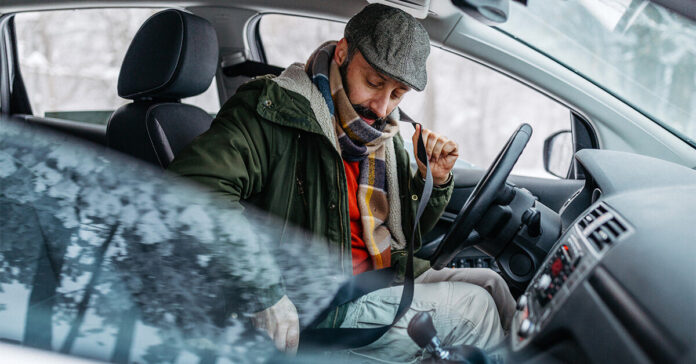Nobody particularly likes to think about the worst-case scenario, especially when planning a vacation. However, it’s vital that no matter what you’re planning on doing, you have an idea of potential hazards you might face while heading to or staying at your intended destination: whether that’s places to avoid for your safety at that destination, knowing what the plan is in the event of a plane crash, or something similar. In the moment, you can’t always trust yourself to think clearly, clouded by shock and adrenaline: preparing beforehand for common disasters that you may encounter can give you an out, keeping you safe while giving you what you need to recuperate swiftly from the incident.
Whether you’re going solo or with your family, if you’re planning on going on a road trip, one of the most common hazards you might face is the possibility of an accident. Whether the cause is a drunk driver, hazardous driving conditions, or just someone else’s good old-fashioned negligence, accidents can happen to anyone at any time on the road: and being in a strange and unfamiliar place, you need to do everything you can before and after the accident to give yourself the best chance to recuperate.
With that in mind, here are steps you can take before and after an accident to increase the chances of doing well post-accident.
Before You Hit the Road: Preparing for the Worst
Making Sure Insurance is Up-To-Date
It’s all too easy to settle for coverage that provides little more than the bare minimum or even to default on your current, insufficient auto insurance policy altogether when you don’t presently need it. While many states require a base form of auto insurance to secure a license, the current laws in place don’t account for every situation a driver could get into, and it’s likely that your current policy won’t be enough to make sure you’re adequately protected while on a road trip.
Take a look at options that are on the market, using tools like Compare.com to compare rates from insurance providers as well as benefits provided with relevant policies. Policy providers that offer options like roadside assistance and uninsured driver protection will be closest to the mark of what you should look for, as those kinds of packages will benefit you on and off of vacation.
Stock Extra Supplies
If you don’t have a spare tire, jumper cables, and a reliable jack in your trunk, now’s the time to stock them. Any number of things can happen while on a road trip that will endanger your safety and that of your family, and you should aim to prepare for as many of them as humanly possible.
Having this equipment on you will allow you to get back on the road safely if a tire blows out or if your battery happens to die while your car’s parked at the hotel.
After the Accident: Your Immediate Next Steps
When all the time for preparation has passed, and you’re in the thick of it, you need to have a map in your head of proper steps to take: otherwise, you may put yourself in further danger or limit your chances of swift financial recovery. Here are the steps you’ll need to take in the immediate aftermath of an accident.
- Get yourself and your vehicle to safety. As soon as you’re able, pull off of the main road, whether that’s to the shoulder, into a level offroad area, or into the nearest parking lot. Your goal should be to limit the chances of further damage to your vehicle, as well as to ensure the safety of all inside: staying on busy roadways may turn your accident into a pileup.
- Obtain the other drivers’ insurance, and call the cops. Obtaining the other driver’s insurance allows you to file a claim with your insurance company, facilitating the process of communication with the at-fault driver’s company for your provider. There’s a reason that this is taught as the first step in accidents in every Driver’s Ed classroom across the country, as doing this will allow you to facilitate the success of your claim. However, calling the cops serves a different purpose, putting the details of the accident down in stone as a legal authority records what happened for the courts. That will be useful if you don’t receive the proper settlement and things escalate.
- Take pictures of everything. Every ounce of damage done, whether to the vehicles involved or to the drivers, should be recorded on the scene at that moment. Taking pictures of all the damage dispels any doubt that the injuries you’ve sustained, or the damage done to both vehicles, happened at the time of the accident and can be useful later.
- Get a lawyer involved. Every now and then, you’ll find that the situation escalates to a courtroom, either because liability is in question or settlements weren’t enough. For those kinds of situations, you’ll want to have a good lawyers’ phone number on hand: having counsel to take you through those situations and navigate the vagaries of the law to your benefit can help you get everything you need and more to recoup your losses.
Nobody likes to plan for the worst, but every now and then, those that do find themselves validated. You don’t want to be caught by surprise when something goes wrong, especially in an unfamiliar environment: take the steps above, and you will find yourself more than prepared when the worst comes your way.










